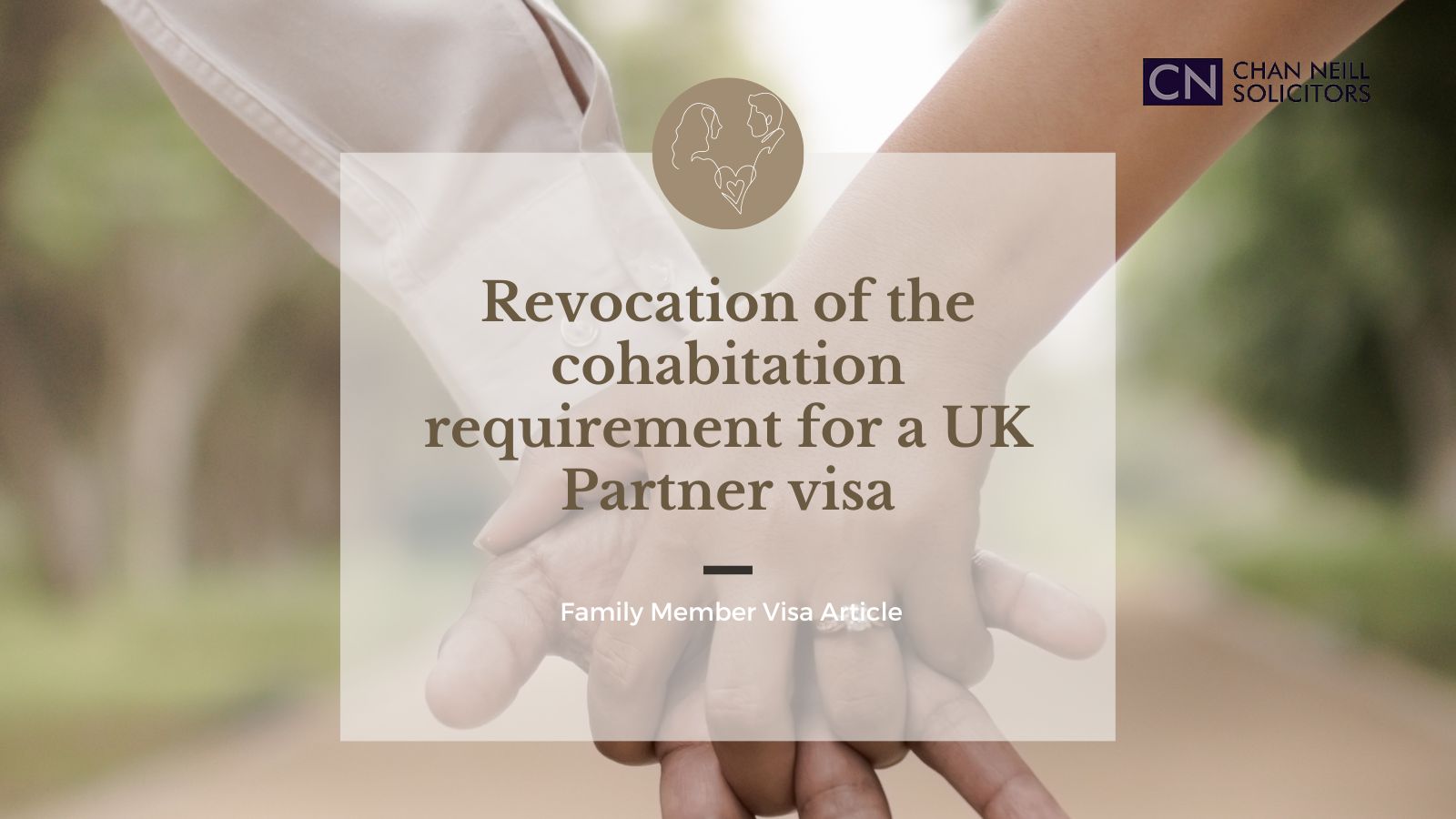Revocation of the cohabitation requirement for a UK partner visa
 For many years it was a standard practice to comply with the cohabitation requirement when applying as an unmarried partner to join a family member under various immigration routes. With the introduction of a new Appendix relationship with Partner that relaxed the definition of “durable relationship”, the relationship requirements under Appendix FM and Appendix FM-SE have now been brought in line.
For many years it was a standard practice to comply with the cohabitation requirement when applying as an unmarried partner to join a family member under various immigration routes. With the introduction of a new Appendix relationship with Partner that relaxed the definition of “durable relationship”, the relationship requirements under Appendix FM and Appendix FM-SE have now been brought in line.
The unmarried partner visa applies to couples that have been in a durable relationship (not married or in a civil partnership) for at least 2 years. In other words, the couple must demonstrate that they have been in a relationship similar to marriage or a civil partnership for at least 2 years before the date of a UK visa application. The unmarried partner visa option is available not only for partners or British or Irish nationals, persons with settled status in the UK, with protection status, with limited leave under Appendix EU and Appendix ECAA applying under Appendix FM and Appendix FM-SE of the Immigration Rules, but also for partners on the work and study routes.
As history serves, the requirement for unmarried partners in relation to “durable relationship” for many years was that the couple “must have been living together in a relationship similar to marriage or civil partnership for at least the two years before the date of application”. This implied at least two years of cohabitation, regardless of whether the application for a UK visa is submitted within the UK or abroad.
With the introduction of an Appendix relationship with Partner into the Immigration Rules for applicants on work and study routes in 2023, the cohabitation requirement was abolished. Instead, the assessment is now based on the facts of each case, regardless of whether the couple have cohabitated or not.
On the 31st of January 2024, the same approach came into force for applications under Appendix FM and Appendix FM-SE of the Immigration Rules, which is rather welcome news.
As marriage is no longer required as a public display of commitment, unmarried partnerships have become very popular and have a very diverse form within and outside the UK. In addition, with technology playing a very prevalent role in modern society, it brings opportunities, enhances communication and provides couples with a new way of maintaining long-distance relationships. This is particularly relevant in some countries/cultures where cohabitation isn’t permitted or where same-sex relationships are not recognised or accepted. The Home Office’s implementation of cohabitation flexibility to the “durable relationship” requirement, therefore, is excellent news.
Where the couple has not cohabitated or has not lived together for some parts of the 2-year period, consideration will be given to the reason for living apart, level and frequency of communication, visits, joint holidays, events attended, financial support and evidence of joint care for children. There may also be cases where no documents can be provided in relation to a durable relationship. In such circumstances, the decision will be based on the facts of the case.
Our Immigration team has decades of experience assisting couples with their immigration matters, in particular, in complex cases where no or little cohabitation documents can be provided. Do not hesitate to get in touch for a brief free assessment or detailed legal advice.
